The Leather Man
Most people knew David Honigmann of the Chapel Hill Leather Shop as simply “The Leather Man” who sold sandals. But the man behind the sandals has an incredible life story.
David Honigmann owned and operated the Chapel Hill Leather Shop from 1964-1984. Located at 133 ½ East Franklin Street, his shop was always packed with customers wanting to buy his custom-made sandals and hand-made leather goods. His craftsmanship was exceptional, and his customer base was fiercely loyal. Most people knew David as simply “The Leather Man” who sold sandals. But the man behind the sandals has an incredible life story.
THE EARLY YEARS
As a young boy, David Honigmann lived all over the world. He was born in New York in 1941, and spent his first years there. His father was an anthropologist, so when David was about four years old, his research took the family abroad, living in India, Pakistan and Northern Canada. It was during these travels that David first saw villagers building things by hand. “I loved to watch people making stuff. In one Indian Village, I remember seeing a man making a toboggan out of wood. When I was a kid in Northern Canada, I’d trade cans of my folks’ food for a little ivory kayak or some other hand-made thing. And a guy was building a canoe right next door.”
David was always good with a hammer and tools, and when he was just four years old, he even built himself a house. It was so tiny, he barely fit into it. “It was more like a very small box,” David admits. But that was his first carpentry attempt, and he was very proud of his little house.
LANDING IN CHAPEL HILL, NC
In 1952, after moving his family back to Astoria, Queens, David’s father was offered a job as an anthropology professor at UNC, which is how many people end up living in Chapel Hill, North Carolina. David was about eleven years old, and his first impression of Chapel Hill, like most recent transplants, was that it was hot and humid. “It was very rural then. People had strong regional accents that were different from the Italian New York accents I was used to,” he remembers. But he loved the large variety and abundance of insects and animals he could find in the fields around town, and often dragged them home with him.
David’s first two years in Chapel Hill were tough. He spent a lot of time at Duke Medical Center getting operations to help alleviate the effects of polio that he was stricken with as a child. He missed a lot of school because of that, and unfortunately the surgeries seemed to do more harm than good. But he had a home tutor during his rehabilitation, and learned a lot from that type of schooling. Though once he was back in Chapel Hill Elementary classrooms, and later entered Chapel Hill High School, (when they were both located on Franklin Street where University Square is now), he struggled as a student and barely squeaked by. Nevertheless, he graduated from CHHS, class of 1959. Academics aside, David loved his class in machining, and fondly remembers all the hot rods and fancy cars that high school students parked right on Franklin Street. Many students even built their own cars out of scraps, with varying degrees of functionality.
TRAVELING THE WORLD
David tried to go to college at UNC, but nothing there kept his interest. He thought at one point he would become an entomologist, but he preferred just being out in the fields looking at all the insects first-hand, rather than reading about them. So instead of pursuing a degree, David headed abroad for a more worldly education, and hitchhiked around Asia and the Middle East for an entire year. “I liked the feeling of having my knapsack on and sleeping bag in one hand, and just sleeping in a field. Though, generally someone would find me and invite me to their house.”
Once David’s travels came to end, he returned to Chapel Hill, but he “was at loose ends here.” So he hitchhiked north to New York City. It was springtime, but still cold, and he was out of money. Already very accustomed to camping in fields, David lived in New York City’s “fields” — parks and rooftops, mostly around Washington Square Park.
PROVINCETOWN, MA
One day in a New York City café, David ran into a woman named Betty Bishop whom he’d known from his Chapel Hill days. He was tired of being homeless and hungry, and so they both decided to leave the big city behind, and hitchhike up to Provincetown, Cape Cod, Massachusetts. As fate would have it, they immediately found jobs in a local leather shop. David was a natural leathersmith. His first day on the job, they showed him how to make a pair of sandals. By the end of the day, David had completed six pairs of sandals, which no one there had ever done before. “I knew about tools and worked on cars, and studied machining in high school, so I was used to the machines like grinders. Leather was a lot less precise, so I was able to do that easily.” It was there that David learned the technique of outlining the customer’s foot, in order to custom fit the sandal, which he would eventually bring back with him to Chapel Hill.
Each sandal that David made earned him $3.00, which was good money back then. By the end of the summer, David and Betty had saved enough money to head home to Chapel Hill. On the way out of town, they loaded up on scraps from the P-town leather shop, and collected all of the shop’s broken tools like knives and scissors, which David eventually ground down and re-fixed to make sharp again. Then they stopped by New York City with some samples and got a few wholesale orders. “So right off the bat we had a set up.”
THE CHAPEL HILL LEATHER SHOP
Back in Chapel Hill, David and Betty found a house off of Airport Road to rent, with no electricity or running water, and started making their own leather goods. It wasn’t long before David and Betty purchased a car so they could drive back and forth to New York City, which is where they bought their leather and brass buckles, and sold their goods in The Village. “In those days, I didn’t think anything about driving to New York. It didn’t cost much. Gas must have been relatively cheaper. We never had the leather shipped because you have to look at leather. We spent a lot of time looking at leather, trying to get good quality leather, and get a good price on leather. Those tanneries were Old World shops. It was necessary to do a lot of bargaining.”
In the autumn of 1964, David and Betty began exploring Franklin Street for a storefront, so they could open up their own leather goods shop. They found a place upstairs at 133 1/2 East Franklin Street, which rented for only $35 a month, and they named it the Chapel Hill Leather Shop. It was just one, big room, owned by Alexander Julian’s father, Maurice Julian. They shared the upstairs with the New Establishment Bar (known as the “New E”) and Logos Books.
Word spread of David’s excellent craftsmanship, and the shop became very successful, very quickly. They were so popular, in fact, that advertising was never necessary. They just had a sign out front that read the Chapel Hill Leather Shop with a pair of sandals nailed to it, and another sign outside the entrance to the store, and that was enough to keep them in business. Now that they were more financially stable, David and Betty would often travel the world together, visiting exotic places as David did when he was young.
STARTING A FAMILY
After a few years, Betty and David amiably went their separate ways. Soon afterward, David met another Betty, Betty Maultsby, who owned a dress shop called The Frock Shop, which was right across from the Chapel Hill Leather Shop. She and her partner made all of the clothes themselves. David and Betty decided to merge businesses to make a bigger shop. “Betty made the leather bags, and was a much better bag designer than I could ever be. I was competent in sandals and belts and stuff like that. Betty doesn’t get enough credit for it, but she made the quality of that place a lot better.” Together they expanded their offerings to sandals, belts, wallets, briefcases, bags purses, pouches, belt pouches, bracelets, braided bracelets and watchbands. Tooling the leather with designs came later. “At first I thought it was tacky,” David adds, “but people wanted that. We spent lots of time hammering in designs and punching out slots with a big mallet.” David also continued selling his goods in New York City on weekends, setting up a table around 6th Avenue and 8th Street or near the Joffrey Ballet, and would simply sleep in his car.
David and Betty had three children together, and every morning they would have a big family breakfast of sausage, eggs, pimento cheese sandwiches and coffee at Sutton’s Drug Store before their leather shop opened at 11:00 am. When the shop closed at 5:00 pm, they would all head over to swim at Clearwater Lake. Lunch was usually spent at the N.C. Cafeteria next door, and at night, David and his co-worker Jack Gordon would play air hockey at He’s Not Here or in the basement of Town Hall, or play pinball at the Tempo Room. The New E was another favorite place of David’s, mainly because it was right across the hall from the leather shop. However, often patrons of the New E would get so drunk, they would rip out the toilets from the bathroom, and David would come in the next morning to discover all that water had leaked under his door, flooding the leather shop!
Even with a family, David never stopped traveling. His traveling buddies were usually Macon Richardson, George Yachan, and David Jenner, though he would often take family trips and bring his young children along with him. Once, he decided to drive straight across the desert by compass from Damascus to Baghdad, only to be turned away at the border and being escorted back with an armed guard. Another time, he was hitchhiking through Vietnam just before the war. American bars were being bombed, so he and another guy stowed away on a French boat to Hong Kong and jumped ship and swam to shore once they reached the harbor. When his son Tioga was a baby, David and Betty took him to Afghanistan, bought a bus with no heat and crossed over the Khyber Pass into Pakistan. And when Piper was just a month old, the whole family went to Honduras, and during their stay, there was a big earthquake that they were fortunate to survive. There are hundreds more amazing stories David could tell — suffice it to say, David is an adventurer by nature.
At their peak, the Chapel Hill Leather Shop was getting twenty orders for sandals a day. “Looking back, we could have done a lot better financially, but we really wanted to keep prices affordable without sacrificing any quality.” Then the inflation crisis of the late 1970’s hit everyone hard, and the Chapel Hill Leather Shop was no exception. “You’d go into Fowler’s Food Mart in the morning for something, and by the afternoon, there was a higher sticker price on the same item!” David and Betty weren’t sure how to adjust for that – they didn’t want to change their prices daily to keep up with inflation – they didn’t think that would be fair to do to their loyal customers.
FROM LEATHER TO JEWELRY
By 1984 the added recession was making it even more difficult to keep the shop going and after twenty years in the leather business, they felt it was time to move on. David had successfully invested most of his profits in local real estate, so that was enough income to float them for a while. The Honigmann family headed first to Beaufort, N.C. and then eventually settled in southern Florida, where they lived on a boat and sold leather goods in Coconut Grove, Miami. While vending there, David ran into Marty, a friend from his NYC street vending days. Marty was doing much better with his beaded earrings than David was doing with leathergoods, so David and Betty sent their daughters Piper and Chelsea to learn earring making from Marty and his girlfriend at their apartment, and they came back and taught them. “We would all sit around making earrings together for years after that.” Jewelry was a lot lighter to transport than those 22-square-foot rolls of cowhides, and it was easier to sell since they were pre-made and didn’t have to be handcrafted like the leather goods. They also enjoyed traveling the world to shop for jewelry to sell, in places like Mexico and Bali – much more interesting than visiting tanneries in downtown Manhattan.
BACK IN CHAPEL HILL TO STAY
After living a few years in Florida, they then moved back to Chapel Hill to be closer to Betty’s family, and like many locals who return, they thought it would be a better place to raise their three children. David sold jewelry in a University Mall stand full-time for many years, and Betty opened her own clothing and jewelry shop on Franklin Street called Lucky Stars, which closed in 2006. Nowadays, you can still find David, and his daughter Piper, running the University Mall jewelry stand for the holiday season, from November – January, with the same attentive customer service, quality of merchandise and affordable prices for which he is famous. The rest of the year, David spends his time managing his real estate properties and playing with his five grandchildren.
Chapel Hillians have such fond memories of David and the Chapel Hill Leather Shop, and he can’t go anywhere without being asked to re-open his shop – or at least make one more pair of sandals for them. David and Betty’s craftsmanship was outstanding, and they stood by the quality of their work. The service both he and Betty gave their customers is a rare find these days, and if anyone came in looking for work, David would usually help them out and find something for them to do. It’s that kind of quality, service and care that creates such loyal customers, even over forty-five years later.
For more about David and his shop, and the memories of a seven year old, click here to read the Chapel Hill Recorder article: “The Chapel Hill Leather Shop.”
Category: People, Popular Articles

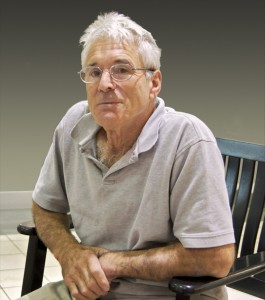
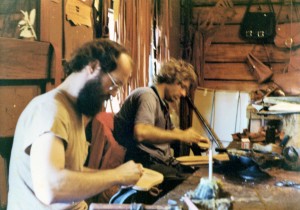
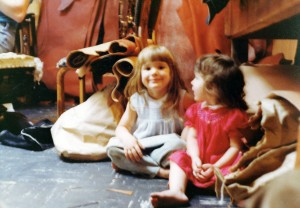
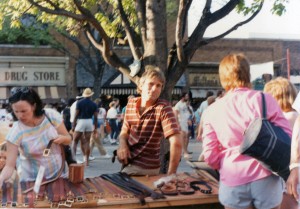
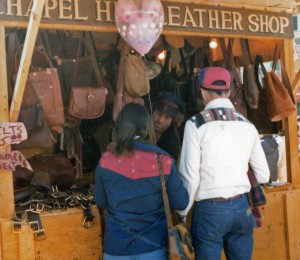
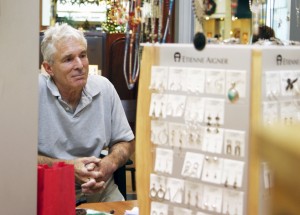







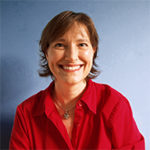

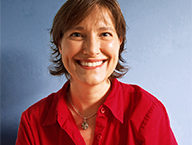
David was certainly a fixture on Franklin Street. What would we do without our sandals from David!
I remember him as a kind of a guru and everyone was a follower.
Definitely!
I have fond memories of buying my sandels every summer from David in the 1970’s in a small store upstairs off of Franklin. Franklin Street then had a 1960’s flavor and David fit right in. The flower ladies sold their flowers right on the sidewalk. Thanks Nancy!